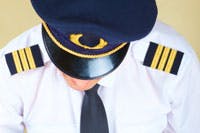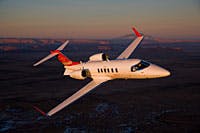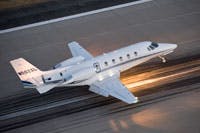Pilot shortages in business aviation

At The Future of Business Jets conference in London in November 2011, I chaired an industry round table on pilot shortages. This is a very brief summary of the discussion (please excuse the bullet points format) and includes some comments from those who took part which may not reflect the groups overall opinion. Please do contact me (adam@privatefly.com) if you would like any more details; or indeed if you took part and think I have missed anything!
Current professional pilot numbers & predictions of requirements for the next 10 years
There are currently 250,000 commercial pilots globally. IATA (Air Transport Association) predicts that over the next 10 years the aviation industry will need 17,000 new pilots every year. The table decided this could be a very conservative estimate and the actual numbers of new pilots required could be significantly higher.
We checked IATA’s calculation by looking at Airbus & Boeing’s order books. eg for Airbus:
- Airbus have 4216 aircraft on order yet to be delivered
- Currently output from Airbus is 500 aircraft delivers per year @ 15 pilots = 7,500 Airbus pilots
- Highest number of Airbus deliveries per year is expected to be 1,500 eg 22,500 Airbus pilots
The assumptions being:
- Scheduled airlines have an average of 15 pilots per aircraft
- Highest output of aircraft from a single manufacture in recent history was Boeing at approx 1,500 in 2007
Factors affecting the global shortage of pilots
The majority of airline pilots have traditionally been recruited from the military or civilian training establishments. Most nations are now drastically reducing their military organisations. On top of this reduction, Air Forces are using increased numbers of unmanned aerial vehicles (UAVs) and globally are reducing pilot numbers.
The average cost of pilot training in Europe is now EUR 80,000 – 100,000. Banks are not lending and so new young pilots must find this funding from friends & family. The low cost carriers have set a precedent of very low pilot starting salaries and charging for aircraft type ratings. The return on (a pilot’s training) investment is very low and is not a motivating factor.
The difference between private jet and airline pilot recruitment

A scheduled airline will order an aircraft for delivery in 3-4 years time and can plan their pilot training and recruitment with long lead times. A private jet operator on the other hand may only have one month’s notice before the arrival of a new aircraft – and so has very short lead times when new pilots are required.
At present no private jet company supports or sponsors pilot training. The NetJet pilot training programme established in 2008 (in association with Oxford Training School) is believed to be cancelled. Private jet companies compete with airlines (with considerably larger budgets) to recruit new pilots. The question is whether business aviation is doing enough to attract pilots to fly private jets instead of scheduled airliners.
Scheduled airline pilots have a regular schedule, good career progression, and a stable job. A private jet pilot has a less regular schedule, and limited career progression opportunities within typically very small companies. But flying private jets does offer more of a flying challenge, pilots fly into smaller airports and have much more operational control over their flights.
Current statistics from training schools show that amongst student pilots, 96% are interested in an airline career while only 4% are considering a career in business aviation.
Pilot shortage or experience shortage?
Regulation changes mean that less experienced pilots will be in the cockpit. For example Europe’s new multi-crew licence, which allows abinitial (new) pilots to fly with as little as 200 hours flying experience. Asian airlines will prefer to have home grown pilots rather than expensive ex-pats and Asian flight training establishments are expected to gear up extensively to meet demand. Regulations and training will adapt to ensure any pilot shortage is met. The future First Officer will have significantly less airmanship than in the past.
Pilot shortage impact on private jet charter market
The expansion of the business aviation industry over the next few years will be limited by the lack of available pilots and crews. Charter customers may need to book their flights further in advance in order to guarantee crew availability for their flight. A private jet operator will always ensure their owner’s flights are crewed before a charter flight is crewed. Aircraft owners will see less return on investment of their aircraft. This may produce a ‘snow ball’ affect, as more private jet customers turn to charter as apposed to ownership.
How can the business aviation industry solve a future pilot shortages?

The private jet charter industry is calling for industry organisations such as EBAA and BACA to investigate possible pilot shortage solutions. One possible option is for business aviation operators to share their pilots in a “pilot pool”. Aviation Authorities (such as the CAA in the UK) should review the possibility of private jet operators having shared licensing qualifications for pilots. eg 2 European operators who both fly the Citation XL, should be able to share pilots for charter flights. Currently pilots can only fly charter flights for an operator if they have a OPC (Operator Proficiency Check) with that specific company.
These private jet industry organisations should also actively promote ‘private flying’ careers to student pilots at training organisations. An industry wide crew benefit scheme would also help to persuade student pilots to take private jet jobs as opposed to starting an airline career.
Related content

Private Jet Predictions for 2012

How much does it cost to hire a private jet?



